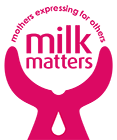Your Premature Baby
The birth of a premature baby is often sudden, unexpected and definitely not part of the ideal birth plan.This frequently makes parents feel unprepared, overwhelmed and uncertain – and worried about their new baby.
A very premature baby is tiny, vulnerable and seems very fragile. The risk of complications is terrifying for the new parents. The high tech world of the neonatal ICU and the efficient, experienced staff are comforting in some ways, and can seem intimidating in others – remember though, like you, they want the best for your baby, so talk to them and ask questions.
Don’t feel afraid to ask the nurse about the machines around you in the neonatal unit or what their functions are. The more you know the less anxious you will feel.
Be assured however, that as parents of your baby, you have a vital role to play – one that nobody else and no technology or medical intervention can fulfil the way you can.
Your premature baby needs you – your presence, your touch, your voice, your breastmilk, your skin-to-skin care, and your love.
As a mother, providing your baby with your breastmilk – by expressing initially perhaps, and then by breastfeeding – is one of the greatest contributions you can make to your baby’s health. It can even be life-saving for your premature baby.

I have adjusted my milk expressing to suit my life style (currently once a day) which has been such a little sacrifice for me, to make such a huge difference. I would highly recommend donating milk, the rewards are endless.
Why breastmilk is so important for your premature baby?
Breastmilk is always best for babies and crucial if your baby is born too soon.
Premature babies who are fed formula rather than breastmilk are at much great risk of contracting serious, even fatal, infections.
Amongst so many other benefits, breastmilk:
- is readily digested.
- will help your premature baby’s immature gut mature and stay healthy.
- contains antibodiesand the best nutrition to fight infections and promote health.
- Contains growth factorsto help your baby grow and become stronger.
- contains unique fatty acidsfound only in breastmilk which allows for your baby’s optimal brain growth.
The very best milk for a premature baby is his or her own mother’s breastmilk – it is perfect for that baby! HIV positive mothers can pasteurise their own milk to make it safe for their baby – pasteurising kills HIV.
If despite adequate breastfeeding support, a mother is unable to supply the breastmilk her baby needs, then screened, pasteurised donor milk is the next best option. The benefits of using donor milk in preference to formula cannot be highlighted enough. (link to benefits of donor milk)
Even if your baby is not well and he is very small, it is very important that you spend as much time with your baby as you can. Holding him skin-to-skin (link to KMC section/page) as soon as possible is very important. This will help:
- promote breastfeeding
- boost your milk supply
- encourage bonding between you and your baby.
Every breastmilk feed your baby consumes is valuable – some call it ‘liquid gold’. Although your baby is consuming very small quantities, literally every drop is precious.
Even if your baby is not ready to feed, you’ll need to express (link to expressing page) as soon as possible in order to build up your supply.
Remember your breast milk can be frozen and stored until your baby is ready to feed.
Donor milk is providing a life-line to 700g, abandoned, premature Baby X.
On Day 34 of receiving donor milk for Baby X, one of the nurses caring for him said, ”He has definitely been to heaven and back a couple of times but is doing well thanks to all the donor milk!”
Starting to breastfeed your premature baby
While holding your baby skin to skin you might notice him trying to move towards the breast and ‘rooting’ for the breast.
Whenever you try to breastfeed, express a little breastmilk so there is milk on your nipple, and then bring your baby towards your breast. He may root and lick some of the milk, and then he may take a few sucks. This process will encourage his suckling reflex.
Be patient the first few times you feed your baby – he may only take a few suckles and then fall asleep. This is normal and remember, because he is small he will get tired quickly. This is why your baby will get the rest of your milk via a feeding cup or tube.
Don’t be scared to ask for advice during this time. Having a premature baby and being in a hospital can be overwhelming and tiring.

Expressing for a premature baby
Please click here to see more information on expressing.
or click on the link below:
http://www.ukamb.org/premature-babies/expressing/
Skin to Skin Development Care (Kangaroo Mother Care)
Neuro-developmental scientists agree that breastfeeding and Skin-to-Skin Care or Kangaroo Mother Care, as it is also known, offers all new-born babies the best start possible. It is particularly important for premature babies and should be started as soon as possible, even while your baby is still very small and in an incubator.
Please click here to see the entire Skin to Skin Developmental Care section.


